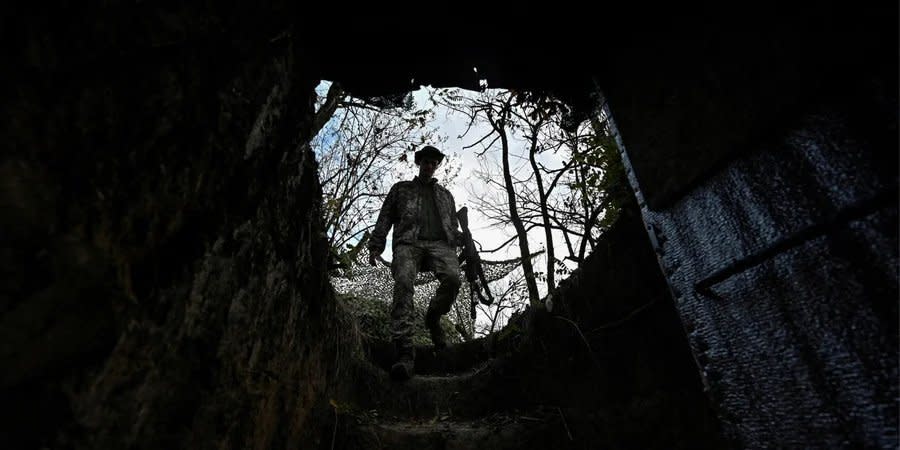Western officials: Russia-Ukraine war could last five more years — the Economist

Western officials increasingly suggest that Russia’s war against Ukraine may last for another five years, with neither Russia nor Ukraine willing to back down, yet both unable to break the deadlock, UK weekly news magazine the Economist wrote on Nov. 13.
The article notes that these are currently challenging times as the conflict between Israel and Hamas in the Gaza Strip threatens to spill over into the entire Middle East, with the United States and Iran also poised to clash in the background. Meanwhile, the war in Ukraine, the largest in Europe since 1945, shows no signs of ending.
The use of Ukraine’s air defense systems is expected to sharply increase in winter when Russia, having amassed months’ worth of missile stockpiles, is likely to commence sustained attack on Ukrainian energy systems.
Read also:
Three important messages from Zaluzhnyi in the article and interview in the Economist
Zelenskyy reacts to General Zaluzhnyi's article in the Economist, says Ukrainians can’t give up
As of now, the United States is likely capable of fulfilling the requirements of both Ukraine and Israel. Additionally, in recent weeks, France and Germany have committed to providing increased assistance to Ukraine.
However, if the war or both wars drag on, compromises will be necessary, warns the Economist.
Read also: Examining the claim of Ukraine’s 70,000 military deaths
“As time goes on, there will be trade-offs as certain key systems are diverted to Israel,” writes Mark Cancian of the Centre for Strategic and International Studies, a think-tank in Washington.
“A few systems that Ukraine needs for its counter-offensive may not be available in the numbers that Ukraine would like,” he added.
The Economist highlights a more significant issue: The United Stated cannot simultaneously arm itself and its allies.
“If (U.S.) production lines are already struggling to keep pace with the exigencies of arming Ukraine,” notes Iskander Rehman of Johns Hopkins University in a recent paper on protracted wars, “they would be completely overwhelmed in the event of an actual protracted, peer-to-peer conflict with an adversary such as China.”
Read also: Ukraine’s top general unveils his strategic blueprint — The Economist
The article delves into the prospect that if the war in Ukraine remains an open wound in Europe and the Middle East ignites, the West will find itself in a precarious position in the event of a new serious crisis.
One risk is that adversaries may take advantage of chaos in other countries to advance their own goals. For example, if the United States becomes entangled in a war in the Pacific, Iran will undoubtedly feel more confident in its ability to advance its nuclear weapons program.
Even more alarming is the prospect of an active conspiracy. European military planners attach great importance to the possibility that Russia may conduct threatening maneuvers during a crisis around Taiwan to divert the attention of the United States and tie allies to itself, preventing them from extending a helping hand in Asia.
“As in the cold war, each crisis, no matter how parochial or trivial, might come to be seen as a test of American or Chinese power, drawing each country in,” the article concludes.
We’re bringing the voice of Ukraine to the world. Support us with a one-time donation, or become a Patron!
Read the original article on The New Voice of Ukraine

